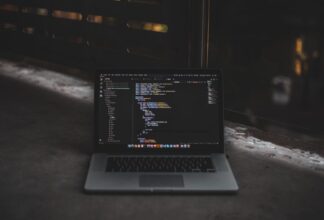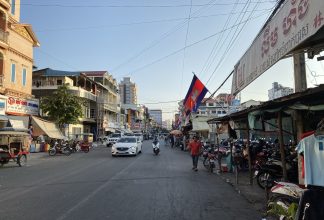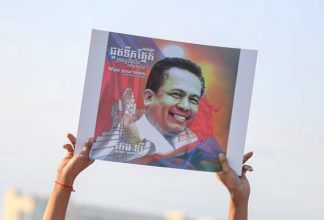Cambodia Parliament Passes Draconian NGO Law
Despite an international and domestic outcry, the Cambodian National Assembly passed the restrictive and unnecessary draft Law on Association and Non-Governmental Organisations (LANGO) today with unanimous support from the parliamentarians of the ruling Cambodian People’s Party (CPP). The law now goes to the Senate, where the CPP has an overwhelming majority.
Civil Rights Defenders sees today’s vote as the latest manifestation of the Cambodian government’s growing hostility towards independent civil society, especially grassroots groups and human rights watchdogs. Other draft legislations that grant sweeping powers to state agencies to impose broad restrictions on basic rights include the draft Law on Trade Unions, Law on Telecommunications, and Cyber-security Law.
“The NGO law provides unchecked powers to government agencies to selectively target civil society groups that they deem unpalatable,” said Brittis Edman, Southeast Asia Programme Director, Civil Rights Defenders. “Donors and the rest of international community should be extremely worried as this is the harbinger of more regressive anti-civil society measures to come.”
All 68 CPP parliamentarians in the lower house voted in favour of the LANGO while the remaining 55 parliamentarians from the opposition Cambodia National Rescue Party (CNRP) boycotted the debate and vote today. The law reportedly only underwent minor, cosmetic changes while all the draconian provisions remain intact, including those that:
- allow for the de-registration of domestic and international NGOs if they are deemed as not “politically neutral”;
- introduce criminal liability on domestic associations and NGOs that choose not to register; and
- grant total discretion to the Ministry of Interior to deny registration on broad and ill-defined grounds that an organisation’s proposed activities “jeopardise peace, stability and public order or harm the national security, national unity, good culture and traditions of the Cambodian national society.”
On 8 July, the government organised a “National Workshop on Understanding Draft LANGO”. The workshop lasted only a few hours, with even less time devoted to questions and answers. Transparency and a meaningful, participatory consultation process are necessary to determine the necessity and legitimacy of proposed legislations, but no such consultations have been held on the law since December 2011, when the government suspended consideration of the draft law following strong opposition. The re-introduction of the law in 2015 and the process leading up to today’s vote have not been adequately transparent and precluded meaningful public participation.
The European Union representative who attended the 8 July workshop delivered a statement stressing that the EU does not support the current draft and that the law will “stifle” the critical work of NGOs and associations. On 9 July, the European Parliament adopted a resolution that urges Cambodia to withdraw the LANGO. Earlier on 2 July, the United Nations Special Rapporteur on the rights to freedom of peaceful assembly and of association, Maina Kiai, warned that the law is a “genuine threat” to independent civil society and that it “gives the government carte blanche…to shut down and criminalise any groups they don’t like.”
“The Senate should reject this bill and the Cambodian government should instead prioritise genuine consultations with independent civil society to undertake comprehensive rule of law reforms aimed at strengthening respect and protection of fundamental freedoms and human rights for all,” said Brittis Edman.


